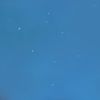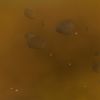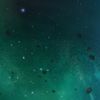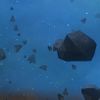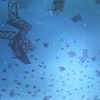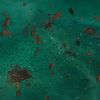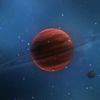
|
This wiki is closed in favour of the new wiki. Information shown is likely to be very out of date. |
Difference between revisions of "Burgundy"
(Stations: Battelship Beuvray moved to New London. Picardy Gate and Hole removed.) |
(Areas of interesst: Picture layout mess fixed) |
||
| Line 1: | Line 1: | ||
| − | {{Version|4. | + | {{Version|4.91}} |
{{System | {{System | ||
|image=Burgundy.JPG | |image=Burgundy.JPG | ||
| Line 59: | Line 59: | ||
=Areas of Interest= | =Areas of Interest= | ||
==Nebulae== | ==Nebulae== | ||
| − | |||
| − | |||
'''Autun Nebula''' | '''Autun Nebula''' | ||
A vast nebula consistent mainly of small ice particles. | A vast nebula consistent mainly of small ice particles. | ||
| + | |||
| + | [[Image:Autun.JPG|100px|left|]] | ||
{{clear}} | {{clear}} | ||
| + | |||
| + | |||
'''Saint-Remy Nebula''' | '''Saint-Remy Nebula''' | ||
A medium-sized nebula of ice particles located within the Nievre Asteroid Field. | A medium-sized nebula of ice particles located within the Nievre Asteroid Field. | ||
| − | [[Image: Saint_remy_2.JPG| | + | [[Image: Saint_remy_2.JPG|100px|left|]] |
{{clear}} | {{clear}} | ||
| + | |||
| + | |||
==Asteroid Fields== | ==Asteroid Fields== | ||
| Line 78: | Line 82: | ||
A relatively large asteroid field in the densely populated area of the Burgundy system. [[Council]] activity is known to be high within the field, with pirates of various kinds also present. | A relatively large asteroid field in the densely populated area of the Burgundy system. [[Council]] activity is known to be high within the field, with pirates of various kinds also present. | ||
| − | [[Image:Saint_remy.JPG| | + | [[Image:Saint_remy.JPG|100px|left|]] |
{{clear}} | {{clear}} | ||
| + | |||
| + | |||
'''Morvan Asteroid Field''' | '''Morvan Asteroid Field''' | ||
An asteroid field in a populated area of Burgundy system. [[Gallic Brigands]] activity is known to be high within the field borders, and civilians are advised to keep their distance. | An asteroid field in a populated area of Burgundy system. [[Gallic Brigands]] activity is known to be high within the field borders, and civilians are advised to keep their distance. | ||
| − | [[Image:Morvan Asteroid Field.JPG| | + | [[Image:Morvan Asteroid Field.JPG|100px|left|]] |
| + | {{clear}} | ||
| + | |||
'''Cote-d'Or Asteroid Field''' | '''Cote-d'Or Asteroid Field''' | ||
| Line 90: | Line 98: | ||
A large asteroid field in a remote region of Burgundy. Remains largely unexplored. | A large asteroid field in a remote region of Burgundy. Remains largely unexplored. | ||
| − | [[Image:Cote-d'Or.JPG| | + | [[Image:Cote-d'Or.JPG|100px|left|]] |
| + | {{clear}} | ||
| − | |||
==Artificial Formations== | ==Artificial Formations== | ||
| Line 100: | Line 108: | ||
A medium-sized field of large space debris remaining after construction of the [[Dijon Station]]. This area was also used to dump debris remaining after other Burgundy base construction sites. Junkers have made an attempt to clear outer parts of the field, but after the start of [[Second Gallic War]] it became obvious that this operation won't reach completion anytime soon. | A medium-sized field of large space debris remaining after construction of the [[Dijon Station]]. This area was also used to dump debris remaining after other Burgundy base construction sites. Junkers have made an attempt to clear outer parts of the field, but after the start of [[Second Gallic War]] it became obvious that this operation won't reach completion anytime soon. | ||
| − | [[Image:Genlis.JPG| | + | [[Image:Genlis.JPG|100px|left|]] |
| − | + | {{clear}} | |
| + | |||
| + | |||
'''Tille Debris Field''' | '''Tille Debris Field''' | ||
A debris field located not far from Alesia Station, formed after construction of Alesia, Avallon and nearby trade lanes in 600-700 A.S. | A debris field located not far from Alesia Station, formed after construction of Alesia, Avallon and nearby trade lanes in 600-700 A.S. | ||
| + | |||
| + | [[Image:Tille.JPG|100px|left|]] | ||
| + | {{Clear}} | ||
| + | |||
| + | |||
==Planet Tonnerre== | ==Planet Tonnerre== | ||
| − | + | ||
A planet of immense size and gravitation, '''Tonnerre''' is the center of the explored parts of the Burgundy system. Located between two stars, this gas giant is not only the largest planet in all [[Kingdom of Gallia|Gallia]] (and probably in all [[Sirius]])), but also has the largest known system of planetary rings. The rings consist of three distinct parts: colorful inner rings containing dust and rock asteroids, and a white outer ring consisting mainly of ice asteroids and small ice particles. Tonnerre has four moons, namely '''Yonne''', '''Auxerre''', '''Chatillion-sur-Seine''', and '''Saulieu'''. Simulations indicate that another two planetoids in the system used to orbit it as well. | A planet of immense size and gravitation, '''Tonnerre''' is the center of the explored parts of the Burgundy system. Located between two stars, this gas giant is not only the largest planet in all [[Kingdom of Gallia|Gallia]] (and probably in all [[Sirius]])), but also has the largest known system of planetary rings. The rings consist of three distinct parts: colorful inner rings containing dust and rock asteroids, and a white outer ring consisting mainly of ice asteroids and small ice particles. Tonnerre has four moons, namely '''Yonne''', '''Auxerre''', '''Chatillion-sur-Seine''', and '''Saulieu'''. Simulations indicate that another two planetoids in the system used to orbit it as well. | ||
| − | [[Image: | + | [[Image:Tonerre2.JPG|100px|left|]] |
{{Clear}} | {{Clear}} | ||
| + | |||
==Jump Gates/Holes== | ==Jump Gates/Holes== | ||
Revision as of 11:57, 25 November 2018

|
A lot of these system pages are outdated, Space's nav map may be better. |
No current description
| System navmap (FL, v4.88.1) (link) |
|---|
| System navmap (FLC, v4.88.1) (link) |
|---|
System Overview
|
Local factions
Lawful
Semi-Lawful
None known Unlawful
Stations
|
Planets
|
Commodities
Produced
Mineable
|
Areas of Interest
Nebulae
Autun Nebula
A vast nebula consistent mainly of small ice particles.
Saint-Remy Nebula
A medium-sized nebula of ice particles located within the Nievre Asteroid Field.
Asteroid Fields
Voiron Asteroid Field
A relatively large asteroid field in the densely populated area of the Burgundy system. Council activity is known to be high within the field, with pirates of various kinds also present.
Morvan Asteroid Field
An asteroid field in a populated area of Burgundy system. Gallic Brigands activity is known to be high within the field borders, and civilians are advised to keep their distance.
Cote-d'Or Asteroid Field
A large asteroid field in a remote region of Burgundy. Remains largely unexplored.
Artificial Formations
Genlis Debris Field
A medium-sized field of large space debris remaining after construction of the Dijon Station. This area was also used to dump debris remaining after other Burgundy base construction sites. Junkers have made an attempt to clear outer parts of the field, but after the start of Second Gallic War it became obvious that this operation won't reach completion anytime soon.
Tille Debris Field
A debris field located not far from Alesia Station, formed after construction of Alesia, Avallon and nearby trade lanes in 600-700 A.S.
Planet Tonnerre
A planet of immense size and gravitation, Tonnerre is the center of the explored parts of the Burgundy system. Located between two stars, this gas giant is not only the largest planet in all Gallia (and probably in all Sirius)), but also has the largest known system of planetary rings. The rings consist of three distinct parts: colorful inner rings containing dust and rock asteroids, and a white outer ring consisting mainly of ice asteroids and small ice particles. Tonnerre has four moons, namely Yonne, Auxerre, Chatillion-sur-Seine, and Saulieu. Simulations indicate that another two planetoids in the system used to orbit it as well.
Jump Gates/Holes
| Spoiler: Jump Hole/Gate Locations | ||||||||||||||||||||||||
|---|---|---|---|---|---|---|---|---|---|---|---|---|---|---|---|---|---|---|---|---|---|---|---|---|
|


